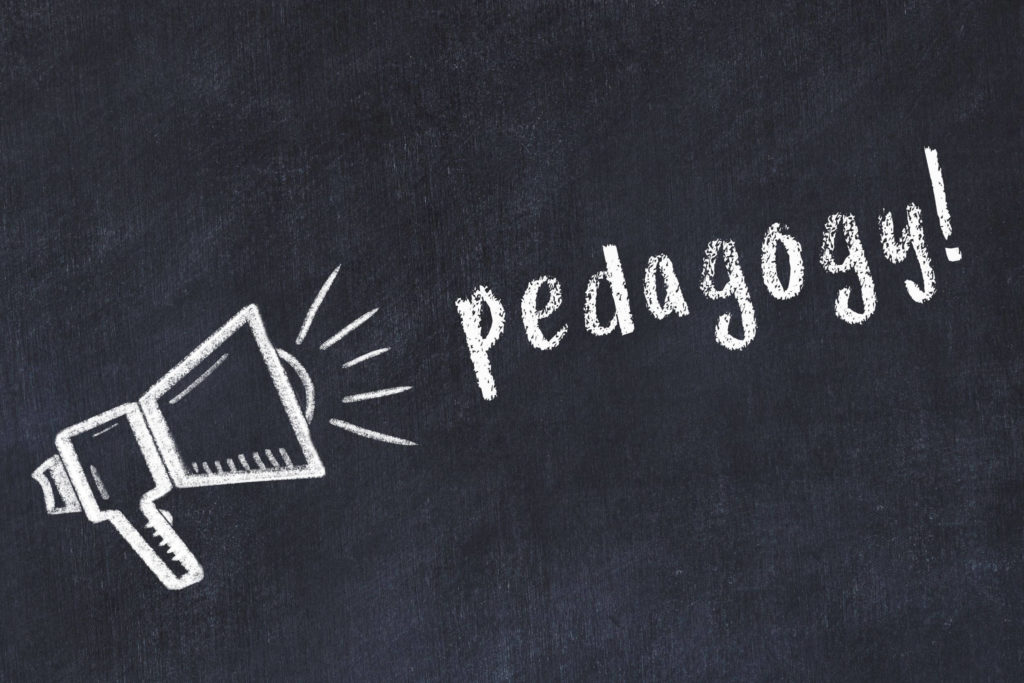Graduate programs are designed to help teachers learn new methods and technologies, develop a specialization, become fully certified, and advance in roles. They increase pay and open new doors for the teaching profession.
What exactly is inclusive pedagogy, and why is it so important? How has the pandemic impacted inclusive pedagogy and its importance? And what are some ways and examples graduate programs are promoting inclusive pedagogy? Now more than ever, graduate programs promote an inclusive pedagogy that fosters a supportive environment where thoughtfulness and respect are shown.
What is Inclusive Pedagogy and Why is It Important?
Inclusive pedagogy refers to a practice of teaching where educators and their students work together to create a supportive, uplifting, and inclusive environment. This method of pedagogy lays the foundation for every student to have equal access to learning by taking into consideration various perspectives, backgrounds, and other barriers students might have.
Inclusive pedagogy embraces mutual respect and thoughtfulness for every individual student regardless of their gender, race, age, or religion. To take it one step further, inclusive pedagogy requires reflection on educators’ choices, how they teach their content, and how their students may receive it. It also invites educators to consider how their social and cultural identity may impact their students’ learning experiences.
How has COVID Impacted Inclusive Pedagogy and Its Importance?
To say that the pandemic has impacted education would be hugely understated. The COVID-19 pandemic has changed the way students learn, how they go to school, and the teachers’ abilities to reach students. Additionally, COVID has impacted inclusive pedagogy and brought even greater awareness of inclusive education.
When students switched to online learning at the start of the pandemic, teachers had to be very mindful of the different learning environments that students would be surrounded by regarding internet accessibility, internet speed, home life, behavioral needs, differentiation, and so many more.
Teachers had to understand that not everyone would have an adult to help them log into their Zoom class, help find their workbook, or help get them to a learning space where they could best pay attention. The COVID-19 pandemic helped bring all these inequalities to the forefront of educators’ minds, and through that awareness, inclusive pedagogy has been positively impacted.
Ways Graduate Programs are Promoting Inclusive Pedagogy
Diversifying Course Materials
To promote inclusive pedagogy, graduate programs are diversifying course material in a variety of ways. This may mean reflecting on the curriculum, when it was written, by whom, and if it is still relevant to current practices.
It can also mean incorporating readings from authors of different cultures, nationalities, and perspectives. It means taking your lesson a step further by putting more profound thought into the literature you choose to pair with your coursework so that all groups are better represented.
Bringing Awareness to Language
Graduate programs are paying closer and closer attention to the language they use in more ways than just how they talk about holidays. It has been common practice not to assume everyone celebrates Christmas or Halloween but mentioning Hanukkah and Eid.
Language can have a significant impact in other ways as well. Being more open to discussing pronouns and using they/them/theirs foster gender neutrality. Additionally, programs are working to avoid generalizations of their own lived experiences and not assuming everyone has had that same experience.
Examining Personal Bias
For not only staff but also for students, graduate programs are putting time and effort into examining personal bias. For educators and students alike, this means reflecting on cultural, religious, or gender assumptions and working towards breaking down walls where stereotypes have been built.
It can mean putting thought into how each individual was raised and how that affects the way they view the world or act. Bringing these biases to life can help students move in a positive and more inclusive direction.
Action: Use Role-Play to More Deeply Incorporate Inclusive Pedagogy
Role-playing is one of the simplest yet most effective ways to bring awareness to various situations. By using hypothetical scenarios, students can actively participate and learn from how they would react if they came upon this situation.
These hypothetical situations could be as simple as a classmate with a disability and how one would respond and help that student (a student who may be blind, in a wheelchair, or has a learning disability).
It could be a situation that brings light to socioeconomic status, religious differences, or cultural norms. By giving students the chance to participate and then reflect on these events, they can be more readily prepared when they face similar situations in the educational world.
Graduate programs are taking steps forward to promote inclusive pedagogy. In the hopes of fostering a more supportive educational environment, mutual respect for one another, as well as breaking down gender, religious, or cultural biases. Programs are focusing on what they can do to guide their staff and educate their students in more inclusively. COVID brought greater awareness of educational inequalities, and graduate programs are taking steps in the right direction to solve them.




